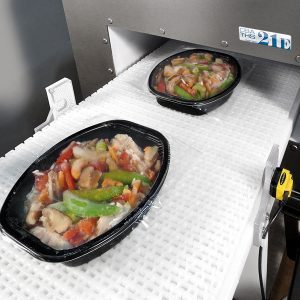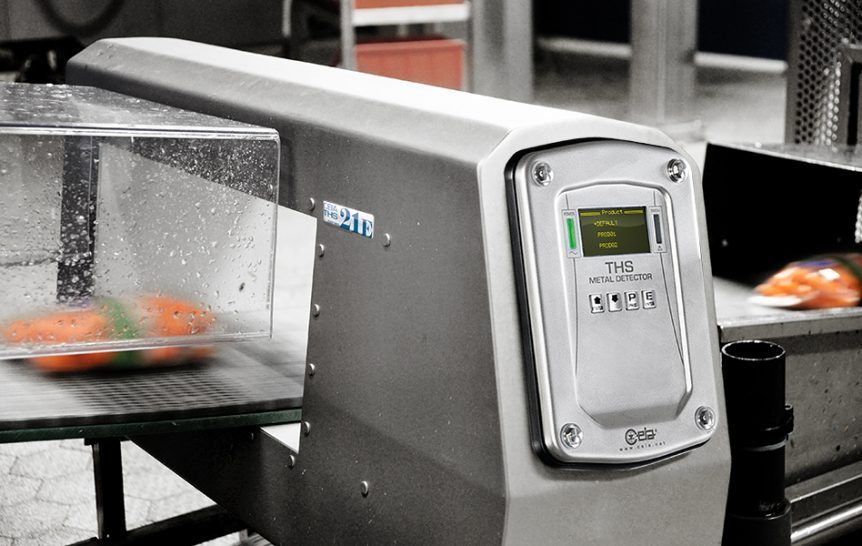As with any capital investment, it is important that the equipment chosen is selected correctly for the task, operates reliably and provides the best possible results. This will ensure you receive the best return on your investment.
The reasons metal detectors are needed include:
- Brand protection
- Consumer protection
- Regulatory compliance
- Supermarket codes of practice
- Protecting downstream equipment
- Minimising costs caused by wasted production
Reducing Metal Contamination
Detecting metal contamination is only one part of an effective system which should always start with the elimination of any possible sources of contamination. If metal is detected there must be a process whereby the source is identified and if possible, is removed as a potential problem in the future.
Any basic system should detect larger metal pieces such as nuts and bolts, blades from knives and parts of sieves or screens. These items are found regularly in the production environment but due to their size they are more easily detected.
Smaller particles such as flakes, specs or shavings create a bigger challenge both from an elimination and a detection perspective. Implementing good practices in installation and maintenance procedures will help significantly reduce such issues.
 Cost of Implementation
Cost of Implementation
Although a significant investment is required, the cost for not installing a metal detection system is likely to be significantly higher.
If a contaminated product can be identified before shipment then there will be several costs that can be associated with this such as raw material wastage, lost production time and rectification costs.
However, if a contaminated product is detected after shipment then a new and potentially more damaging set of costs arise such as those associated with a large product recall, negative publicity, loss of reputation and cancelled orders. It may even lead to legal action against your organisation.
Dealing with an issue before it becomes a complaint will always be a much more cost effective route for any business.
Protecting the Consumer & Your Brand
The consumer has the right to assume that all reasonable steps have been taken to protect them from receiving contaminated and potentially harmful products. An effective metal detection system is therefore a necessity for all producers and a failure to implement a system can harm the consumer.
Alongside the moral obligation to protect the consumer, is the business imperative to protect your brand and secure its place in the marketplace.
A well-established brand is an important asset to any business and loss of reputation can have a catastrophic effect on sales.
If the worse does happen and you have documented your procedures and production records, then these can assist in identifying and rectifying any issues and restore confidence in the supply chain.
Certification
Metal detection equipment will be a key part of any audit process and is often viewed as major safety feature by your customers.
Accurate certification allows you to perform audits successfully whether they are internal, external or linked to your ISO9001:2000 quality management system.
Many national regulatory and food safety bodies will also require accurate certification of your processes as part of their safety checks and approval processes.
Supermarket Codes of Practice
All of the leading supermarkets have drawn up their own codes of practice that must be complied with by any supplier wishing to sell their products via their outlets. The supermarkets also have valuable brands that they wish to protect and hence insist a supplier meets their standards before they are approved.
Conclusion
Although there may be no legal necessity to implement a metal detection programme in your production facility, there are many compelling business and moral reasons to do so.
As well as protecting your customers and brand names, an effective system allows you to deal with major distributors such as supermarkets and national retailers.
Failure to implement one closes these routes to market and leaves you vulnerable to both business failure through loss of reputation and in the worst case legal action.
Correctly specifying and identifying the best metal detection system for your process will bring about a strong return on your initial investment.

